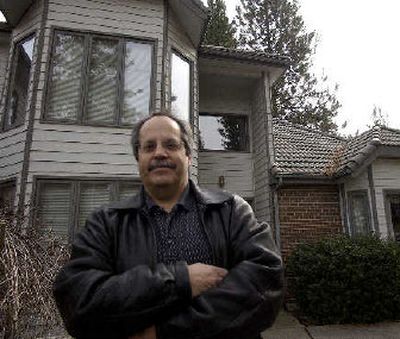Bert Caldwell: The crush is on for regional biodiesel industry

Spokane has the railroads, grain elevators and consumers to become — again — the hub of a thriving farm economy if biofuels displace gasoline and diesel at service station pumps.
Two proposed projects, one in Spokane and one in Spokane Valley, could eventually produce more than 50 million gallons of biodiesel a year from canola, which produces seeds rich in a high-quality oil useful as a fuel or lubricant. The oil and residual meal, which can be used as cattle feed, could generate millions in new income for farmers perilously dependent on wheat grown for export.
The area’s first biodiesel plant could be operating by fall.
Retired U.S. Department of Agriculture employee Tim King says used crushing equipment he purchased earlier this year from a mill in Lethbridge, Alberta, is being cleaned and prepared for shipping. He plans to put the first crusher at the Cenex-owned grain elevators near Napa and Trent. Adjacent rail lines will allow him to import canola from Canada and the Midwest that can feed the plant until locally grown seed is available. He says he already has buyers for the oil.A quick startup will not only generate income, King says, but it also will show area wheat growers there is a local market for canola.
“The farmers aren’t going to plant seed until they see a crusher,” he says.
King estimates farmers could clear more than $100 an acre on canola. A single crusher could handle seed off 70,000 acres. He would spot the other three crushers in Spokane or other communities, depending on demand.
So far, King has financed his venture with a $300,000 second mortgage on his home, and a separate $550,000 loan. That’s not enough to start operations, but he got a boost Wednesday when he received a phone message from a local government indicating it would support an application for $2 million in state financing. He was awaiting confirmation.The Legislature authorized $17 million in low-interest loans to support the startup of a biofuels industry in the state. Of that amount, $10.5 million has already been committed to five specific projects, including $2 million ticketed for the Spokane County Conservation District. Applications for the remaining $6.5 million are due tomorrow Applicants must have a government partner. The conservation district will flow its funds through to Palouse-Bio, which plans to build a crusher and refinery on two acres in Spokane Valley already occupied by Northwest Pea & Bean Co. Inc. Palouse-Bio is backed by five area farm cooperatives with 1,200 growers.
“It’s a perfect location,” says district spokesman Jim Armstrong. And, he added, “They don’t have to worry about “Where are their feedstocks coming from?’”
King could be priming the pump for both ventures. Also, the state, in addition to the loans, is further supporting the industry by requiring all diesel to contain at least 2 percent state-grown biodiesel by 2008. That’s about 20 million gallons.
Although the 100 million-gallon biodiesel plant proposed Tuesday for Grays Harbor County raised anew questions about the volume of fuel Washington can absorb, and the potential return to farmers and smaller crushers, King is confident the buyers are out there for a quality, local product.
He’s not a Pollyanna.
In the late 1990s, he was an area resource and conservation development coordinator managing a USDA program intended to help the United States move towards compliance with the controversial Kyoto Protocol. Although the U.S. did not sign that treaty, the Clinton Administration supported a system that would have offset carbon dioxide emissions from industrial and utility plants by encouraging the planting of trees.
The program was quickly killed by the Bush Administration. King retired, but he says he’s sticking with biodiesel. He says several investors have approached him about buying his equipment, but he wants to be there as the infant biodiesel industry gets on its feet in Washington.
“My objective is not to sell used equipment,” he says. “I want to see the plants go.”